Cluster bombs dropped by US in Afghanistan continue to kill Afghan civilians
The globally-banned, mass-destructive cluster bombs dropped by US military forces in Afghanistan during their 20-year occupation of the country continue to wreak havoc among Afghans with the unexploded bomblets still remaining a major life-threatening risk to local civilians.
There are currently 195,000 registered maimed individuals in Afghanistan, the majority of whom are victims of cluster bomb and drone strikes across the country during the US-led military occupation, the Afghan Ministry of Martyrs and Disable Affairs has declared as cited in a Saturday report by China Global Television Network (CGTN).
It is estimated that during the first three years of the destructive invasion, American forces dropped more than 1,500 cluster bombs across the impoverished nation torn by terror and foreign military occupation.
Unexploded ordnances from cluster bombs dropped by the US military continue to cause fatalities and injuries years and even decades after the munitions were launched, a senior official of the ministry pointed out.
The US -- despite its purported and hyped up advocacy for "human rights" -- remains among the countries of the world that has refused to sign the convention banning the use of cluster munitions due the long-term risk they pose to civilian lives even after a conflict concludes.
''We don't have exact data on the number of Afghans maimed by the use of cluster bombs but in fact, many cases of disabilities -- including those suffered by the Mujahideen -- are a result of air strikes, including drone attacks and cluster bombs, said the ministry's Chief of Staff Qari Shah Mohamd, referring to fighters resisting the US-led invasion.
"The US has committed various war crimes in Afghanistan, except for the use of nuclear bombs," Mohamd further emphasized.
Among the civilian victims of cluster bombs dropped in Afghanistan is 27-year-old Suleiman, who was struck by a cluster bomblet while playing in the Jalrez district of eastern Wardak province during his childhood, according to the report, which noted that all he can now recall is the trauma and the intense pain he experienced at the time.
"When I heard the sounds of bombardment I was totally frightened. I was just six years old. A bomb struck me in the back and I have been disabled since then," he said.
The report further identified Asadullah as yet another civilian victim of a similar incident, explaining that he was on his way back home with his classmates when a left-over cluster bomblet detonated, killing three of his classmates and mutilating his own arm.
Following the tragedy, Asadullah went on to complete his education in India, earning a bachelor's degree in mining engineering. However, he still continues to visit psychiatrists for mental treatment due to the horrific incident he experienced back in 2011.
"I was admitted to the hospital and when I opened my eyes, I realized that I had lost one of my arms. It remains the most traumatic memory of my life," he stressed.
The report then went on to underscore that US President Joe Biden recently signed off supplying Ukraine with cluster bombs for use against Russians despite knowing about the enormous trauma the mass-destructive weapon had inflicted on the Afghan people.
Ukrainian media outlets reported Friday that Kiev has already received shipments of the weapon.
The report further cited Afghan military expert Abdul Wahid Taqat as expressing apprehension over Washington's decision to supply cluster bombs to Kiev.
"It's a tremendous human tragedy, and this tragedy has been brought about by the US and its allies, including the UK and other countries, that have all come together under the NATO structure," Taqat asserted. "They have adopted it as their policy, which is very treacherous."
Washington’s controversial decision to send its banned cluster bombs to Ukraine took place despite widespread international condemnation and even opposition by several of Washington's NATO allies, including the UK, Spain, Canada and Germany.
UK Prime Minister Rishi Sunak pointed out that Britain remained committed to the international convention that prohibits the use and production of cluster munitions – unlike the US, Russia and Ukraine.
Sunak voiced his opposition to supplying cluster munitions to Ukraine by insisting that London will not follow Washington's lead on this matter. He said London will instead press allied governments to boost their military aid to Kiev “in other ways.”
The international Convention on Cluster Munitions, which has been endorsed by more than 120 countries, bans the use of the massively destructive cluster bombs. The signatories of the convention agreed not to use, produce, transfer or stockpile the weapons and to clear them after they have been used.
The use of cluster bombs against civilian targets constitutes a war crime.
Italian farmers protest EU-Mercosur free trade deal
VIDEO | Russian FM holds annual press briefing, highlighting ‘equality-based’ diplomacy
VIDEO | Israel rejects Gaza 'technocratic body' amid continued suffering in Gaza
Iranian prodigy Benyamin Faraji wins Under-17 title in Qatar
VIDEO | Press TV's news headlines
VIDEO | Tehran residents condemn US-Israel orchestrated mosque arson, vandalism
VIDEO | South Koreans demand end to joint US military drills and provocative policy against North Korea
VIDEO | A silent grief: Palestinian man struggles to recover remains of wife, children


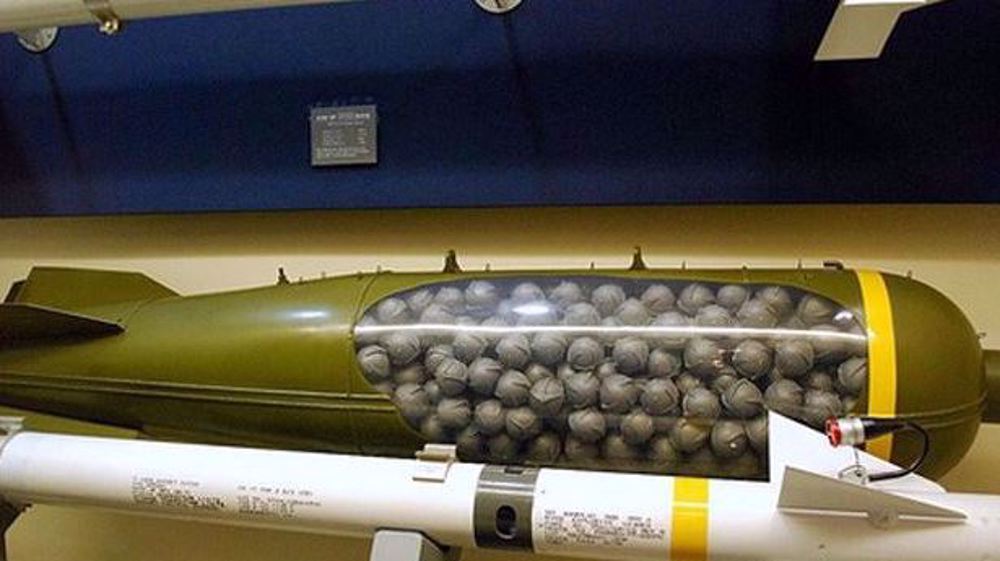
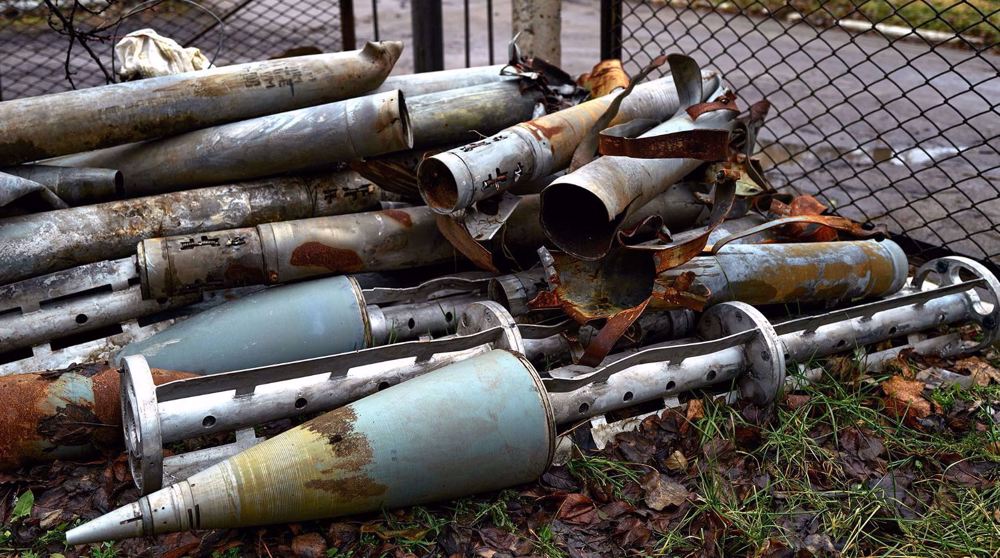
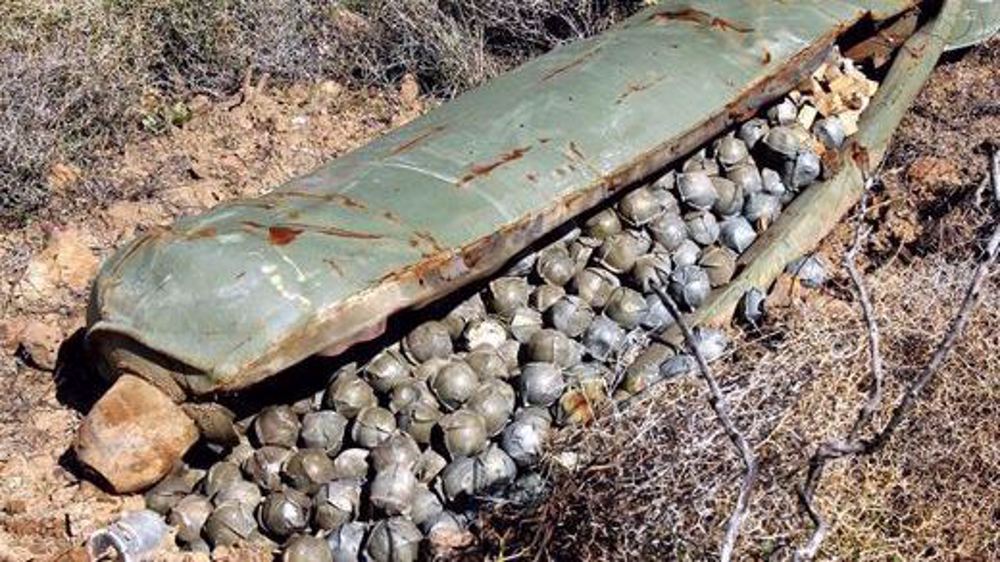
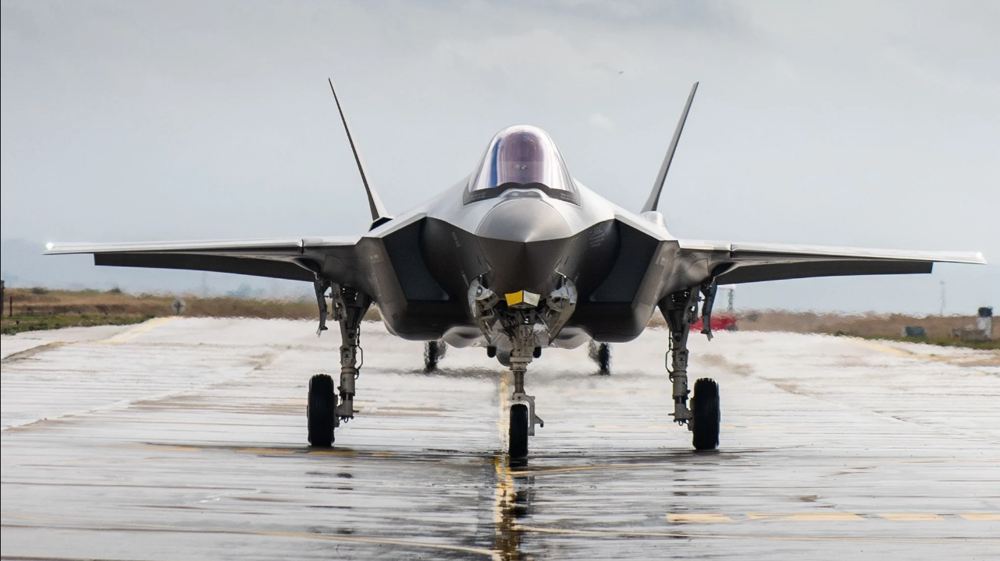

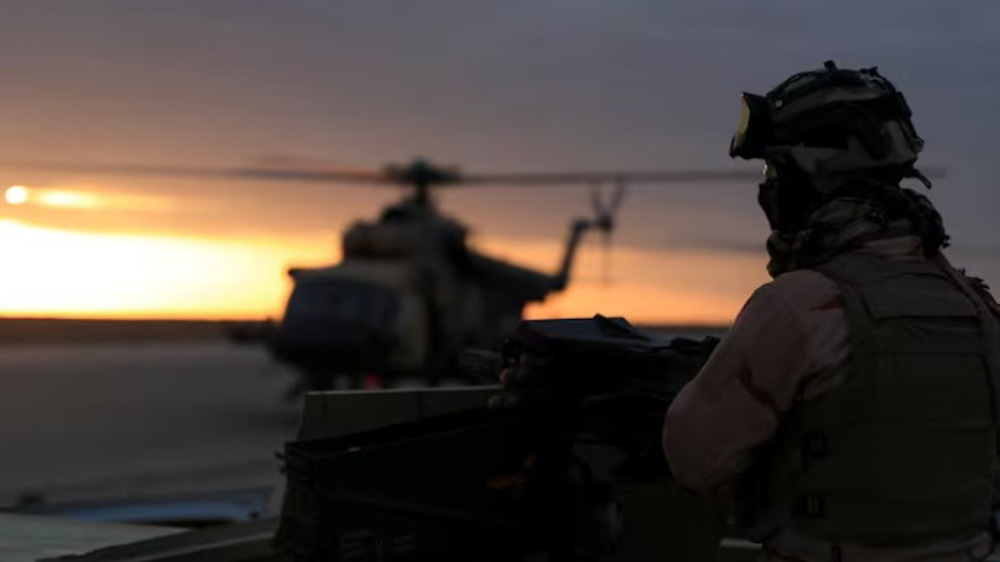





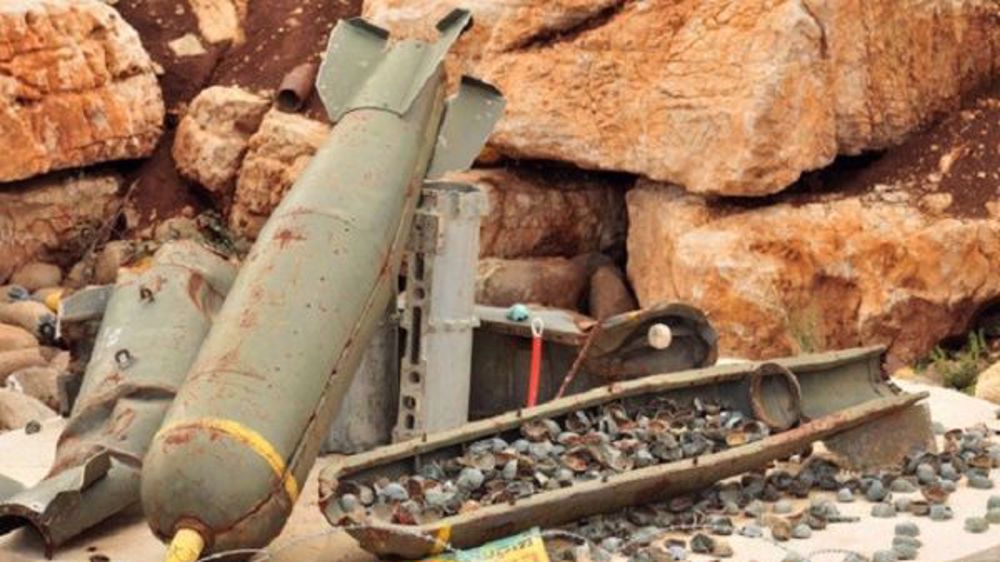

 This makes it easy to access the Press TV website
This makes it easy to access the Press TV website